“Five percent is more or less the average of investment-grade rates since the time of Alexander Hamilton. The problem is the structures that 10 years of ultra-easy money brought about. People blame it on the normalization of rates. The previous bout of abnormal rates is the problem.”
I suppose the most bearish thing I saw this week was this:
"You don't really see any sign of a recession here," Yellen told Bloomberg. "What we have looks like a soft landing with very good outcomes for the U.S. economy, so I think there's a lot to be pleased about."
Then again…
I think the challenge for all of us imagining next year is to not lose our head when all of this blows up, when all this illiquidity in non-banks and stupid things asset allocators have done, as tempting as is to join the throng, and we can imagine already and say, “The world’s ending, tin food and this, that and the other.” Actually, the smart thing to do is to say, “Actually, I know that asset. It’s a great asset. It’s just held by a very weak hand.” That’s going to be the challenge. But look, I’m imagining 2024.
- James Aitken with Grant Williams and Bill Fleckenstein
(One of my few investing talents is I don’t panic.)
Anyway, Yellen’s the same person who said in June 2017 that the Fed’s balance sheet normalization would “be like watching paint dry, that this will just be something that runs quietly in the background.”
“Would I say there will never, ever be another financial crisis?” Yellen said at a question-and-answer event in London.
“You know probably that would be going too far but I do think we’re much safer and I hope that it will not be in our lifetimes and I don’t believe it will be,” she said.
It’s insulting to the American people that Janet Yellen has constantly risen to an ever higher position of dangerous incompetence.
“The gap between our elites and our policymaking people
and the rest of society is immense and growing.”
GDP per capita, as we've seen, is a weaker series than GDP. What does it suggest about recession risk? The next chart shows the YoY change in real GDP per capita since 1960. We've again highlighted recessions. The blue show the YoY real GDP for the quarter before the recession began, and the dotted line gives us a sense of how the current level compares to recession starts since 1960. The average rate at the start of the recessions shown is 1.47%. The current real YoY GDP per capita is 2.44%, which is at or below two of the nine recessions shown.
…recent evidence strongly indicates that intense speculation by individual real estate investors also significantly magnified the boom and worsened the bust.
Good thing “intense speculation by individual real estate investors” didn’t happen this time.
Anyone interested in an “inactive Meth lab,” with “meth contamination,” and “Access Denied by County”?
“House prices are set by the marginal buyer.”
- something I heard
"The outcome is no different here from the previous housing bubble. Either incomes are going to catch up to match home prices or home prices will need to adjust lower."
- Dr. Housing Bubble (who was around for the last rodeo)
Pending Home Sales Remain Low Despite September Growth
Over this time frame, the US population has grown by 18.2%. For a better look at the underlying trend, here is an overlay with the nominal index and the population-adjusted variant. The focus is pending home sales growth since 2001. The above chart shows the percent off turn-of-the-century values. The index for the most recent month is currently 45% below its all-time high from August 2020. The population-adjusted index is 50% off its high from July 2005.
Goldman Sachs Exchanges Podcast: Commercial Real Estate Risks
I’ve done a study around this conversion, which is called Converting Brown Offices to Green Apartments…it tries to quantify what fraction of office buildings is physically suitable for conversion, and we end up with a number around ten to fifteen percent of offices in the U.S. are physically suitable for conversion, and if you do the math, that turns out to be about maybe 400,000 apartments nationwide that we could create, which is not a small number, but it’s also not a huge number…the second point we make is that the financial return on this conversion if often very tricky. I like to describe it as a “narrow path.”
- Stijn Van Nieuwerburgh, professor of real estate and finance at Columbia Business School
“I’ve been calling this a train wreck in slow motion.” - Nieuwerburgh
Meanwhile…
Greg Weldon on “U.S. budget insanity”:
Here’s Weldon talking to Realvision the other day.
Jim Grant Explains
…the whole world has become accustomed to interest rates basically only going in one direction. Of course, there was plenty of volatility along the way, but persistent, if not continuous declines in rates have been the norm for the careers and investment minds of most living human beings. Consequently, expectations are deeply embedded in our collective psyche that rates do one thing, which is to decline. Yet here we are, observing them go up. So it’s no wonder that many people don’t exactly want to believe it. It’s highly irregular, and not at all in the way of our collective experience going back many, many years…
I suspect that this most sudden and even violent lurch higher in interest rates is going to test financial structures that came into being during the period of very low nominal interest rates. Think of what all came into being, when money was proverbially free from 2010 to 2021: Cryptocurrencies flourished, dito venture capital and private equity. There were no constraints on sovereign debt issuance, so public credit was expanded dramatically. Interest expense seemed to be forever minimal and not worrisome because, after all, rates would never rise. To some degree, the entire world was capitalized on the expectation of extremely low interest rates…
All-time low interest rates beguiled, seduced and even coerced people into doing things they would not have done perhaps except for interest rates that were not the product of the marketplace but rather the product of the models of the central bankers of the world. The problem with 4%, 5% and 6% interest rates today is not 4%, 5% and 6% on their face. The real problem is the preceding regime of zero percent rates, and the debt accumulation that those rates fostered and brought into being.
Ark Investment Management’s flagship Ark Innovation ETF (ticker: ARKK) absorbed some $200 million in net outflows – equivalent to a bit more than 3% of total assets – from the October 2022 stock market lows through mid-July according to Bloomberg, a period in which the vehicle rallied by 42% and the S&P 500 enjoyed a 20% advance. Subsequent price action has validated those choosing to pull their cash, with ARKK losing 24% over the past three months, leaving the fund with a 76% downdraft from its late 2021 peak. Five-year returns stand at minus 11%, compared to (positive) 113% for the Nasdaq 100.
As the Financial Times highlights today, Ark has refined its marketing pitch in response, publishing a missive highlighting the “tax-free appreciation potential” in its suite of products. As the firm’s Sept. 21 white paper puts it, Ark funds have “accumulated capital loss carryforwards that will offset net capital gains that otherwise would have been distributed and taxed.”
ARK vs Berkshire Hathaway Ratio
Investors have poured a net $17.9 billion into the fund [TLT] this year as of Wednesday, data from Morningstar show, with those inflows helping balloon TLT’s total assets to $37.4 billion from $26.9 billion as of Dec. 31, despite a minus 14.3% total return over that stretch. The fund sits 52% below its August 2020 high water mark, and a mere 3% above its lifetime low logged in spring 2004.
- Grant’s
From $160 to $85 - that’s a 47% drop. People forgot about interest rate risk.
Private Credit
“Private lenders that took disproportionate risks in recent years have been disproportionately rewarded,” John Pavelski, co-head of North American credit opportunities at the Carlyle Group, told the WSJ. “That’s going to change.” Such a shift may be underway, as covenant loan defaults within the Lincoln Senior Debt Index registered at 4.2% during the second quarter, up from a 2.2% pace during the final three months of 2021…
JC Flowers & Co. CEO and eponym J. Christopher Flowers told the Financial Times Monday that an industrywide push to gather insurance assets over recent years has turbocharged direct lending’s growth, but raises the specter of cascading losses if adverse financial and economic conditions were to persist.
“One of these days, some life insurance company is going to get whacked on their private credit,” Flowers said. “You can have a run on a life insurance company.” As policyholders are free to redeem their funds, the prospect of rising losses from the category poses the risk of igniting a vicious cycle, Flowers argued. ‘Someone is going to get zapped. . . probably more than one firm, and it will be a rude awakening for investors.”
- Grant’s
GeekWire Podcast: The end of the road for Convoy is a cautionary tale for startups and investors
Convoy was one of the Seattle region’s top startups, raising $260 million in equity and venture debt just 18 months ago, at a valuation of $3.8 billion. Its investor list was a who’s who of tech moguls and celebrities, including Bill Gates, Jeff Bezos, Marc Benioff, and even Bono and The Edge of U2 fame.
Now Convoy is essentially bankrupt. Interesting story.
Ted Oakley and Grant Williams
"If we didn't have a budget deficit we'd have zero growth." - Jeff Gundlach
Equifax Earnings Call
Delinquencies for subprime auto consumers are above pre-pandemic levels, as well above levels in 2009 and 2010.
Credit card utilization is increasing, credit card delinquency rates for prime consumers which represent about 20% of the market are stable but are above pre-pandemic levels…
However, subprime borrower delinquencies which have been increasing over the past year are now above pre-pandemic levels and approaching the levels we saw in 2009 and 2010.
Auto delinquency rates for prime consumers, which represent about 20% of the market, are also stable but above pre-pandemic levels and still well below 1%. Delinquencies for subprime consumers are above pre-pandemic levels as well above levels that we saw in 2009 and 2010. And any customer credit tightening has largely been in fintech and subprime, which started over a year ago. Overall, still a solid market for Equifax outside of mortgage and hiring. When consumers are working, they largely have the capacity to keep current on their financial obligations.
Caroline Ellison Was Supposed to Shock the SBF Trial. Instead, the Defense Team Has.
Q. While you dated, what, if anything, did the defendant tell you about his professional goals?
A. He was very ambitious. He talked about wanting Alameda and eventually FTX to be successful and to end up being huge companies that did a wide variety of things. He was also very interested in politics and talked about wanting to use his money to have influence on politics. He said at one point he thought there was a 5 percent chance he would become president someday.
Q. When you say president, what are you referring to?
A. Of the United States.
Episode 138 – Tweets, Trolls, and Superstars in the Sam Bankman-Fried Trial (feat. Katie Baker)
Episode 137 – SBF asked FTX’s lawyer to make up excuses for missing money (feat. Danny Nelson) “It’s just bank fraud.”
ROBERT R. PRECHTER: PEAK OF ALL PEAKS – A MARKET TOP OF THE AGES & WHY THE BEAR IS HERE TO STAY
I think Elliott Wave Theory is far more art than science. Prechter is a brilliant guy, but I still remember when he was saying Dow 3600 was the ultimate top. I am interested in his “socionomic” observations though
“How can it be that events, conditions and authorities’ actions have no impact on the stock market? The answer is: They are not causes but results. No wonder they don’t cause anything.”
Quoth the Raven #323 - Larry Lepard: This Is An Unprecedented Fiscal Doom Loop
I am an indeterminist.
I listened to a Russ Roberts interview with determinist Robert Sapolsky, and was not impressed. I know he has more letters after his name than I do, but Sapolsky sounds very soft-science-y to me, much like many of the economists I listen to (I like Russ Roberts, though. e.g., He did a very good podcast with Vinay Prasad back in 2022.)
I disliked the ending of the excellent series "Devs," for example, which, like determinism1, was also fiction. I didn't hear much "science" in this podcast, and I refuse to believe that Ted Bundy killed women partly because some caveman sneezed. (Sorry, I had no choice but to write this.)
Indeterminism thus denies the world to be one unbending unit of fact. It says there is a certain ultimate pluralism in it; and, so saying, it corroborates our ordinary unsophisticated view of things. To that view, actualities seem to float in a wider sea of possibilities from out of which they are chosen ; and, somewhere, indeterminism says, such possibilities exist, and form a part of truth.
Determinism, on the contrary, says they exist nowhere, and that necessity on the one hand and impossibility on the other are the sole categories of the real. Possibilities that fail to get realized are, for determinism, pure illusions: they never were possibilities at all. There is nothing inchoate, it says, about this universe of ours, all that was or is or shall be actual in it having been from eternity virtually there. The cloud of alternatives our minds escort this mass of actuality withal is a cloud of sheer deceptions, to which impossibilities is the only name that rightfully belongs.
The issue, it will be seen, is a perfectly sharp one, which no eulogistic terminology can smear over or wipe out. The truth must lie with one side or the other, and its lying with one side makes the other false.
William James, The Dilemma of Determinism
Diana Choyleva, Enodo Economics, on China with Grant Williams
I would argue that China’s growth over the last 20 years, since the WTO entry more than 20 years ago, did not end up being a positive for the world as a whole. And we’ve discussed that during our previous talk, but let me put it in another way because essentially China was so huge and it was bolted on to the global economy, which was a market economy at that point, predominantly serving the needs of the free liberal democratic world. And then we bolted on China, and they were supposed to converge to being a market economy pretty swiftly, but they didn’t.
So we had them administering the price of capital globally and the price of electricity. Once so much of manufacturing moved across to China, we no longer had the production of global manufacturers based really in the inputs that go into that purely on the supply and demand principles. So I would argue that by incorporating China, it looked like we had Goldilocks for a number of years, strong growth and no inflation, and then it ended up actually in that massive debt explosion in the Anglo-Saxon world, which was really because China was throwing free money.
James Aitken with Grant Williams and Bill Fleckenstein
We broke the glass on fiscal policy. We did direct fiscal transfers. So much of what’s happening comes from that simple fact, and there’s no obvious prospect of fiscal restraint and that, plus inflation, but despite everyone trying ever so hard to predict it’s topped, it’s still way too high. It’s still too sticky. And we need to keep an open mind about how it is that, despite everything the Fed’s done, for example, despite a Fed funds rate of 5.25% to 5.5%, let’s say 5.30, 5.35 effective rate, we’re still wondering, are we there yet? And I’m not sure we are there yet.
Bonus points for Aitken’s use of the phrase U.S. “fiscal dysentery.”
Elbridge Colby, talking to Grant Williams about China
When the Wall Street Journal talks about economics, it talks about scarcity and the need to grapple with trade-offs, but then it’s talking about in the foreign policy realm, we can keep acting like it’s 1999. That’s why I started out by saying, I enjoy talking to market people. Because market people start out with the idea, “Hey, nothing is free in this world. You got these trade-offs, right?” And the foreign policy conversation, it’s like we’re supposed to think despite the rise of the first peer superpower in our modern history that we can just continue going on it like there’s no problem. That can’t make sense.
“Central Banks are going to have to come in and they’ll be easing liquidity a lot more. The debt burden, or the financing of debt is so significant, that they will have to monetize, and that is a fantastic thumbs up for risk assets.”
Unfortunately, the resultant inflation will be a disaster most of America.
ALTHOUGH THERE ARE COUNTLESS MALADIES that are forever causing the decline of kingdoms, princedoms, and republics, the following four (in my judgment) are the most serious: civil discord, a high death rate, sterility of the soil, and the debasement of coinage. The first three are so obvious that everybody recognizes the damage they cause; but the fourth one, which has to do with money, is noticed by only a few very thoughtful people, since it does not operate all at once and at a single blow, but gradually overthrows governments, and in a hidden, insidious way.
Martyrmade (Darryl Cooper) on Israel and Gaza From the comments: “This is one of the most clear-eyed analyses I have ever heard on the topic by an American.”
“the doctrine that all events, including human action, are ultimately determined by causes regarded as external to the will. Some philosophers have taken determinism to imply that individual human beings have no free will and cannot be held morally responsible for their actions.”




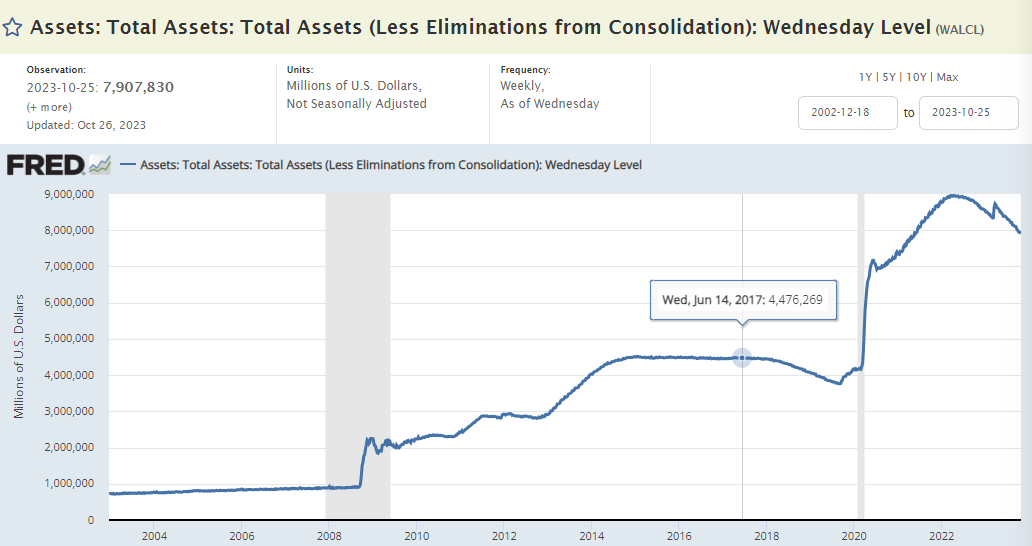








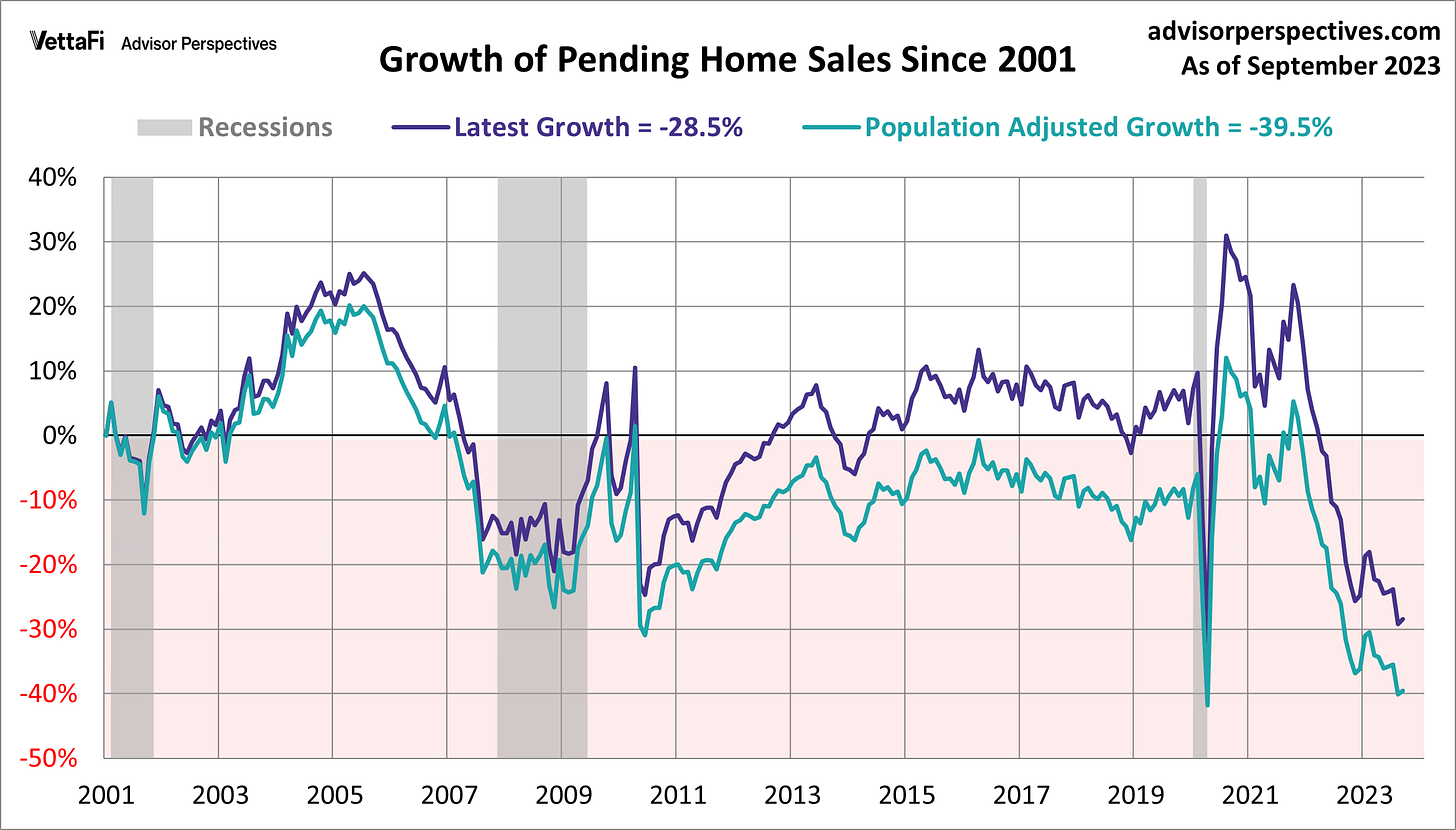

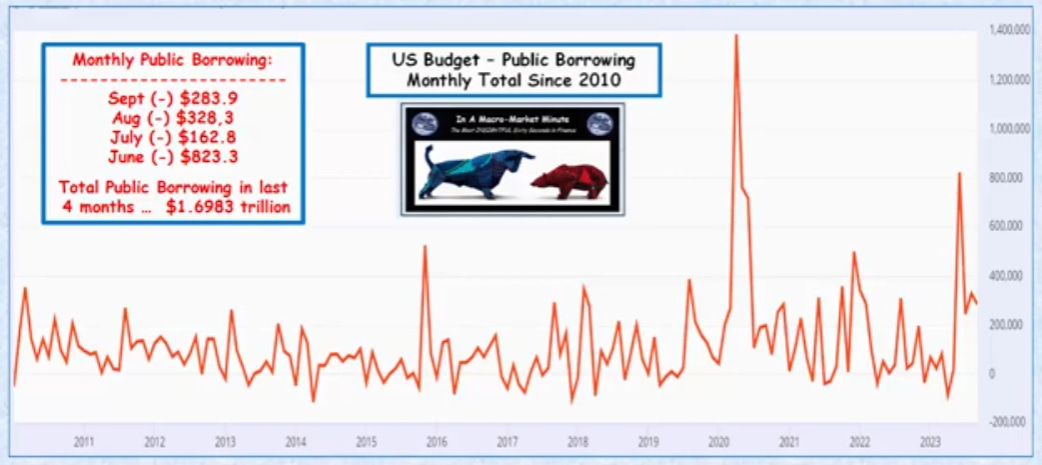
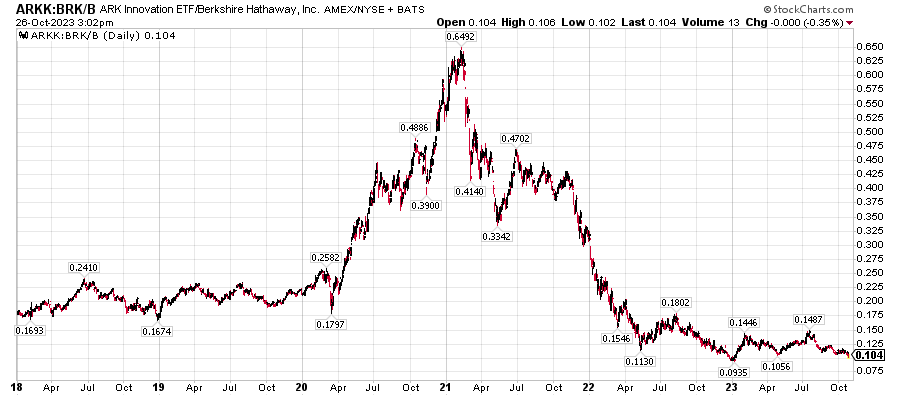
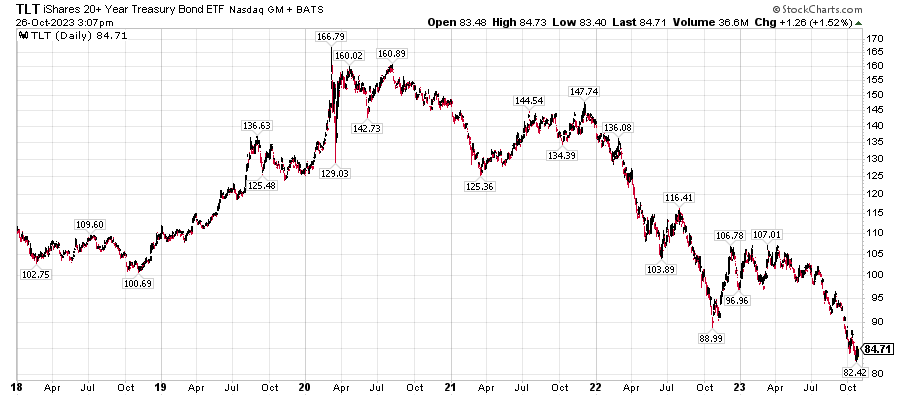
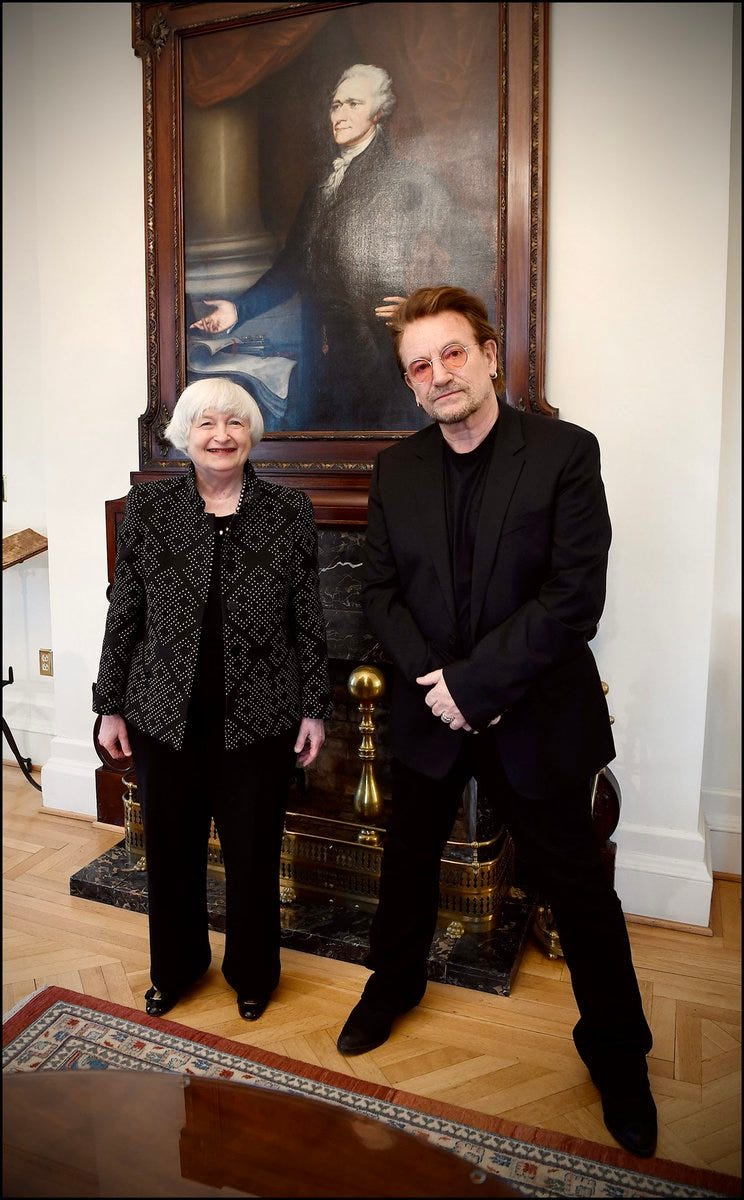


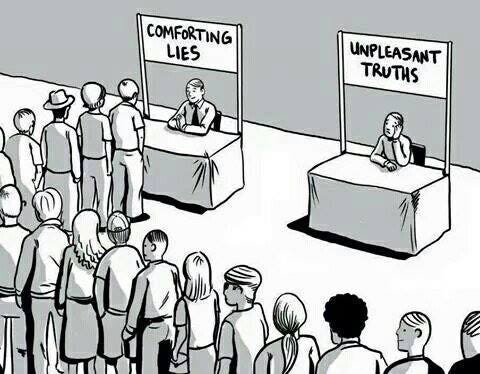




"You don't really see any sign of a recession here," Yellen told Bloomberg. "What we have looks like a soft landing with very good outcomes for the U.S. economy, so I think there's a lot to be pleased about."
We’ve done quite a bit of work trying to identify some of the funding questions surrounding Bear Stearns, Countrywide, and some of the commercial paper programs. There is some strain, but so far it looks as though nothing is really imminent in those areas.”
- Bill Dudley, NY FED President
“Given the fundamental factors in place that should support the demand for housing, we believe the effect of the troubles in the subprime sector on the broader housing market will likely be limited
I believe the mortgage crisis is contained”
- Ben Bernanke, FED Chairman
What is it with these eggheads?
Owing to the very high respect I have for you, Rudy, I wish to bring to your attention the possibility that we could change the world with a consonant. Instead of calling them "elites" we call them "effetes." We take the meaning of effete to be "no longer capable of effective action." I think doing so would address a major linguistic error.
Let's test it out. "Janet Yellen is not actually elite, she is effete. Her era of effective actions is long past."
idk why, but calling people like her "elites" is really bothersome